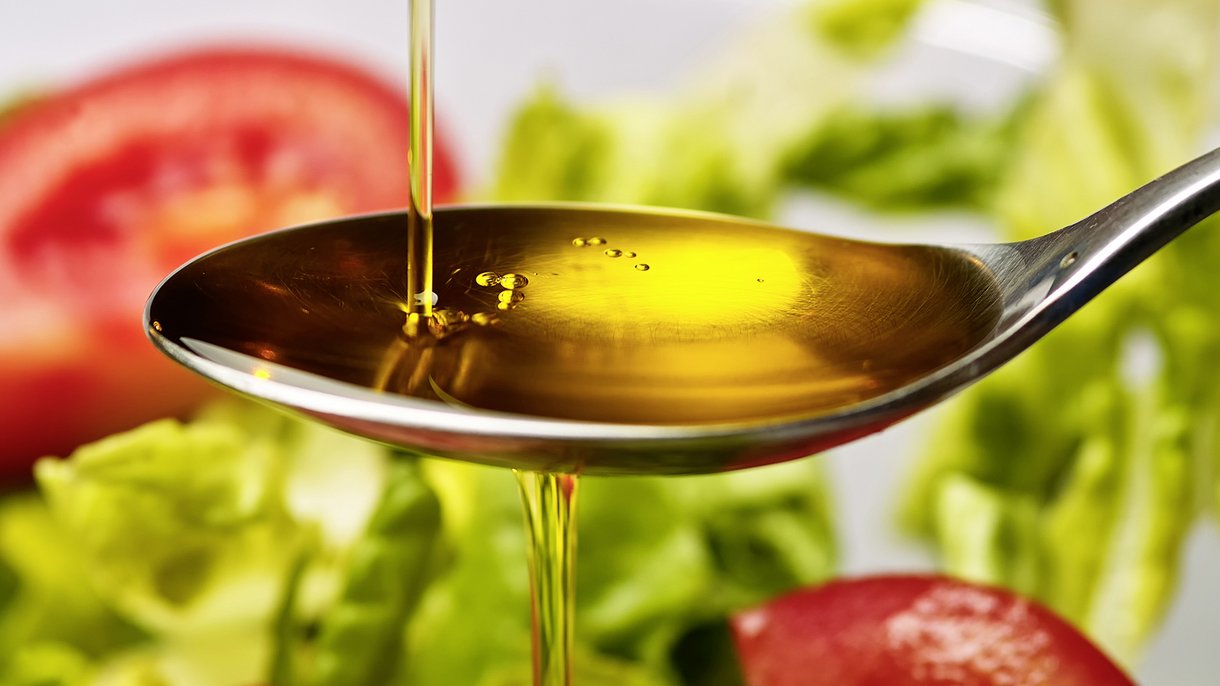Fats are commonly divided into vegetable fats (from seeds or fruits) and animal fats (from milk, eggs or meat). The latter contain cholesterol. Plant fats and oils contain negligible amounts of cholesterol.
Most of the fats that people eat are so-called saturated fatty acids. These are mainly found in fatty meats, dairy products, coconut oil and baked goods. If you lower your saturated fat intake, your heart and circulatory system will thank you!
Daily cholesterol intake is often much higher than the recommended 300 mg. Giblets and fatty meats are the main culprits. Eggs contain a fair amount of cholesterol, but they also supply important nutrients. So you can enjoy 2-3 eggs a week with a clear conscience.
Almost everyone’s diet is lacking one type of fat: polyunsaturated fatty acids from fish oil. So-called omega-3s have positive effects on the heart and circulatory system. The best sources are oily fish such as herring, mackerel and salmon. Why not include one or two of them in your weekly meal plan?
In your body, fat is your largest stored energy source. So for example, if you need to put on weight, you can also add some oil to your meals.
Different kinds of fats and oils affect our body in different ways. “Healthy fat” is not a contradiction in terms! The best standard oils for your kitchen are rapeseed (canola) and olive. For more variety, try walnut or pumpkin seed oil. Last but not least, fats enhance the flavours and textures of many foods. You don’t have to give up tasty dishes.
